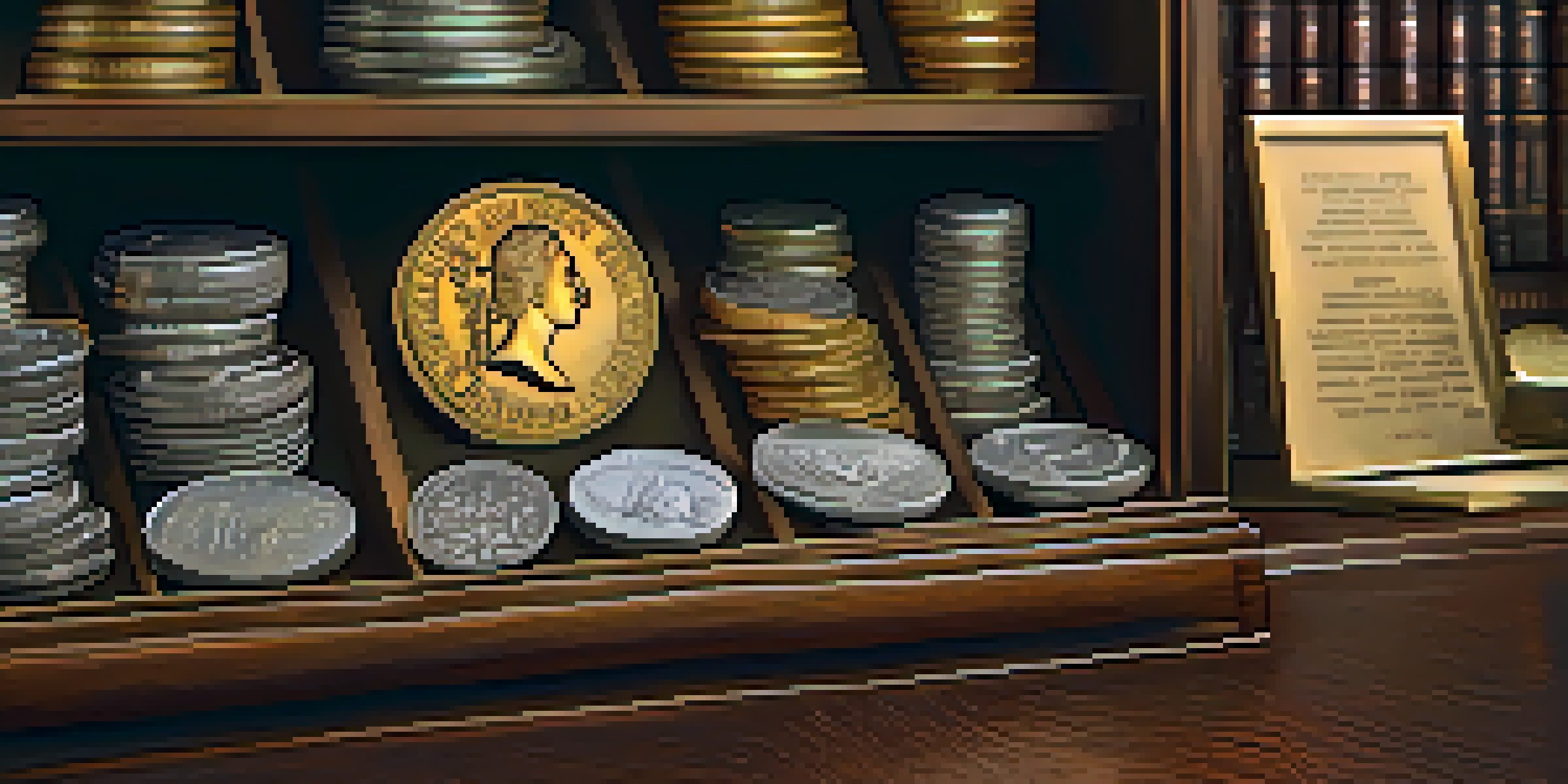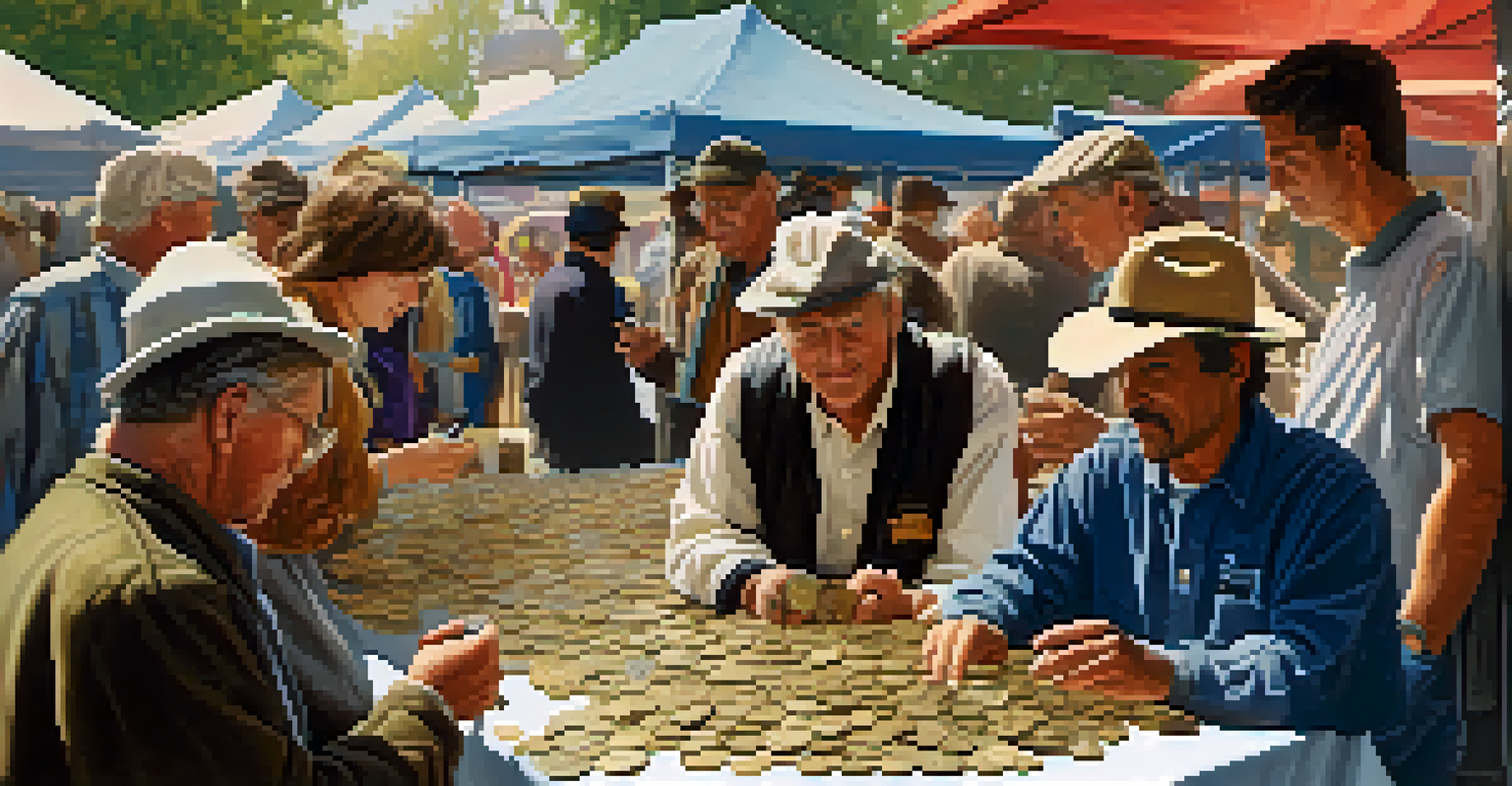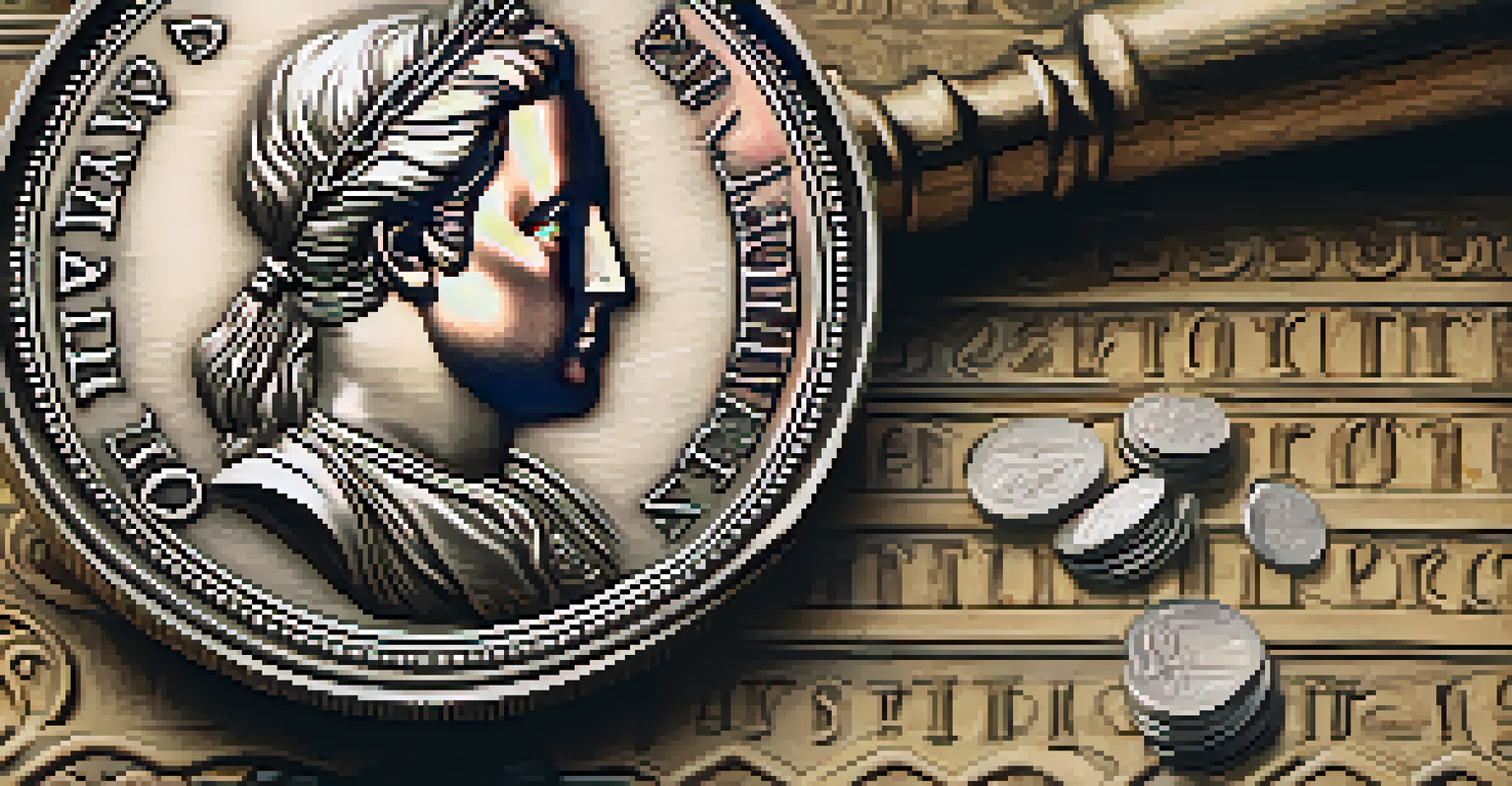Coin Collecting Ethics: Understanding Fair Practices

Understanding the Importance of Ethics in Coin Collecting
Ethics in coin collecting is crucial because it ensures fairness and integrity in the market. Collectors, dealers, and investors all play a role in upholding these standards. When everyone adheres to ethical practices, it enhances the overall reputation of numismatics as a hobby and investment.
The coin is a currency, but a collector sees it as a story.
Consider the impact of unethical practices, like misrepresentation or fraud, which can lead to mistrust among collectors and even legal repercussions. For instance, if a dealer sells a counterfeit coin without disclosure, it undermines the entire community. Therefore, understanding and committing to ethical practices is essential for fostering a positive environment.
By prioritizing ethics, collectors contribute to a culture of respect and accountability. This not only protects individual collectors but also preserves the value and significance of coins as historical artifacts. In essence, ethics are the backbone of a thriving coin collecting community.
Key Ethical Principles Every Collector Should Know
Several core ethical principles guide responsible coin collecting. Transparency is vital; collectors should always disclose the provenance and condition of coins. This honesty builds trust between buyers and sellers, creating a reliable marketplace.

Another important principle is respect for cultural heritage. Coins often reflect significant historical events and societies, so it’s essential to avoid acquiring items that were obtained through illegal or unethical means. For example, collecting coins looted from archaeological sites can harm our understanding of history.
Ethics Build Trust in Collecting
Upholding ethical practices fosters trust and integrity among collectors and dealers, enhancing the numismatic community.
Lastly, fair pricing is a critical ethical consideration. Collectors should ensure they pay and charge fair prices based on market value and the coin's condition. Engaging in fair transactions not only benefits individuals but also supports a healthy numismatic ecosystem.
The Role of Transparency in Coin Transactions
Transparency in coin transactions fosters trust and credibility within the numismatic community. When collectors and dealers are open about their practices, it mitigates the risk of fraud. For instance, providing detailed descriptions and certifications can assure buyers about the coin's authenticity.
Collecting is about more than just the items; it’s about the journey and the respect we give to the past.
Additionally, maintaining clear records of transactions is vital. These records can serve as proof of ownership and help in case disputes arise. Think of it as a safety net that protects both parties involved in the transaction.
Ultimately, transparency is about creating a culture of accountability. When everyone plays their part, it leads to a healthier environment where collectors can confidently pursue their passion without fear of being taken advantage of.
Respecting Cultural Heritage Through Responsible Collecting
Coin collecting goes beyond personal interest; it also involves a responsibility to respect cultural heritage. Many coins hold significant historical value that reflects the culture and history of their origin. As such, collectors should be mindful of how they acquire these pieces.
Engaging in responsible collecting means avoiding items with questionable provenance. For example, purchasing coins that have been illegally excavated not only disrespects cultural heritage but can also lead to legal issues for the collector. It's essential to research and understand the background of coins before acquiring them.
Respect Cultural Heritage
Responsible collecting involves avoiding items with questionable provenance to honor the historical significance of coins.
By respecting cultural heritage, collectors contribute to the preservation of history. This mindset not only enriches their own collecting experience but also honors the stories behind the coins they cherish.
Recognizing and Avoiding Fraudulent Practices
Fraudulent practices can plague the coin collecting community, making it essential for collectors to be informed. Common scams include counterfeit coins and misrepresented values. Being aware of these tactics can save collectors from significant financial loss.
One effective way to avoid fraud is by purchasing coins from reputable dealers. Look for those who are members of recognized organizations and have positive reviews. This can provide some assurance of their credibility and the authenticity of their coins.
Furthermore, educating oneself about coin grading and characteristics can help collectors spot potential fraud. By taking the time to learn, collectors can feel more confident in their purchases and protect themselves from scams.
Building a Community of Ethical Collectors
Creating a community of ethical collectors starts with individual responsibility. Each collector has the power to influence the culture of numismatics positively. By practicing ethical behavior, they set an example for others, inspiring a collective commitment to integrity.
Participating in local coin clubs or online forums can also help foster this community. Sharing knowledge and experiences about ethical practices encourages others to adopt similar values. Remember, a vibrant community thrives on mutual respect and support.
Transparency Prevents Fraud
Being transparent in transactions helps mitigate the risk of fraud, ensuring a safer environment for collectors.
Ultimately, when collectors unite under a banner of ethics, they enhance the hobby for everyone involved. This sense of community not only enriches the collecting experience but also preserves the integrity of numismatics for future generations.
The Future of Ethical Coin Collecting
As the coin collecting landscape evolves, so too does the need for ethical practices. With advancements in technology and online marketplaces, collectors face new challenges. It's crucial to stay informed about best practices to navigate this changing environment effectively.
Emerging trends like digital currencies and blockchain technology also influence coin collecting ethics. These innovations can enhance transparency and traceability, helping collectors make informed decisions. Embracing these changes can lead to more ethical practices in the industry.

Looking ahead, fostering a culture of ethics will be vital for the sustainability of coin collecting. By prioritizing integrity and responsibility, collectors can ensure that this beloved hobby remains a respected and valued pursuit.